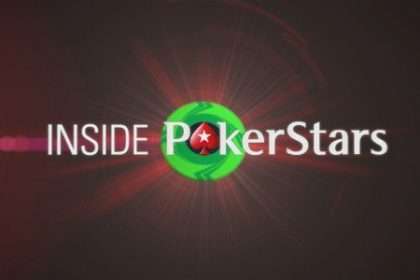PokerStars PR Machine Addresses Poker Player Misconceptions
 Online poker is still burdened with a reputation in the mainstream media that is less than helpful when the industry’s future of is being discussed. With some players suspicious about sites’ motives in providing online poker, in addition to well-publicized scandals in the industry, it’s not that surprising that the impression of the industry has hardly moved on from the stereotypical image of a smoky backroom where a fool and his money are soon parted.
Online poker is still burdened with a reputation in the mainstream media that is less than helpful when the industry’s future of is being discussed. With some players suspicious about sites’ motives in providing online poker, in addition to well-publicized scandals in the industry, it’s not that surprising that the impression of the industry has hardly moved on from the stereotypical image of a smoky backroom where a fool and his money are soon parted.
The thing is, that view of the gambling industry is very out of date. Poker is part of a growing gambling industry that in Europe was worth €84.9 billion in 2011. This includes a 15% growth in online gambling for that year as well. As one of the leaders of this growing industry, PokerStars PR appear to have decided to go on the offensive, showing the world how they manage and operate the world’s biggest poker site.
PokerStars’ Head of Corporate Communications, Eric Hollreiser, has also written a blog explaining the thought process behind this new direction for the media arm of the PokerStars brand. According to this blog, it was a reaction to the massive number of people who watched a video on the PokerStars YouTube channel released about six weeks ago. The video examined the behind-the-scenes action that operating a company the size of PokerStars entails, including showing us how the site’s RNG (Random Number Generator) worked. While they didn’t go into high levels of detail, they did let the world know that the RNG for the site started with photons bouncing off a mirror, giving the process a starting point that is effectively completely random. Some of the players who I see week in and week out complaining on the forums may disagree with that, but nothing short of a signed letter from a celestial deity is going to persuade some of them.
The video showed the 800 servers based on the Isle of Man along with the supporting technology. This included both fingerprint and numerical code protection for all the server racks reiterating what PokerStars have been saying for years; they take player security very seriously.
The James Hartigan-fronted videos released this week focus in on some of the other aspects of the business. The first video, entitled “What Kind of Company is PokerStars?” provided an overview of the company. During the video, Eric Hollreiser described the company as a start-up company that has grown to a stage where it is made up of 1700 employees with 65 million registered players around the world. These players are supported by a “follow the sun” customer-support system operating in 29 different languages, which Hollreiser considers the “focus” of the business.
The second video was predominately about “What PokerStars Does with My Money?” With the very rational concern about player funds following the original Full Tilt Poker’s use of player funds to offset operational costs, this was an obvious area of consumer interest that needed attention. Hartigan interviewed PokerStars’ Director of Treasury, Donna Crellin, and despite on-camera jitters, Donna was able to confirm that PokerStars holds all player funds in separate segregated accounts. She also explained that PokerStars uses multiple accounts to hold player funds, a measure that makes a lot of sense after the collapse of financial institutions following the financial crisis in 2008.
These videos are a great attempt to improve the mainstream profile of the game, and they highlight the steps taken by the upstanding and honest operators. The problem is, this is an internal PokerStars set of videos, and the sceptics are going to refuse to accept the information presented. I haven’t seen a reduction in the number of players saying the RNG on PokerStars is fixed against them in the six weeks since the behind the scenes video was released, and while I liked the open attitude from PokerStars PR, I really wasn’t expecting to see a real-world impact from these videos.
This issue isn’t just confined to the issues being covered by this video series. Mainstream media do not consider online gambling to be a big enough issue to cover, and while the majority of coverage by dedicated poker media is good, there is a reasonable doubt about this coverage as it directly relies on the industry for it’s monetisation. Affiliate accounts and adverts from poker sites on news pages can undermine reader’s confidence in a site’s impartiality. It’s an issue that has been around for many years, but with other parts of niche media (mainly the video game media industry) currently discussing how journalistic integrity needs to be maintained, this issue is likely to raise it’s head in the poker world before too much water passes under the bridge.
If you have any questions you’d like PokerStars to cover in future videos, you can email the media team at [email protected] and it may be asked and answered in the future.




















COMMENTS